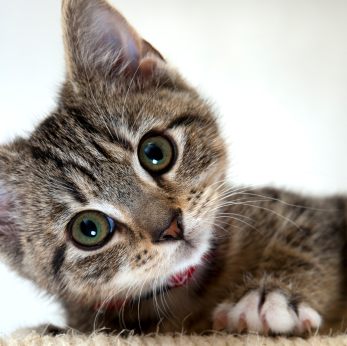Coccidia
Coccidia are tiny single-celled parasites that live in the wall of your cat’s (or dog's) intestine. They are found more often in kittens, but they can also infect older cats.
Cats become infected by swallowing soil that contains coccidia or other substances in the environment that may contain cat feces It is also possible that rodents could eat the coccidia and contract a “resting” stage of the parasite. Cats that are old enough to hunt could then be infected when they hunt and eat these animals. Cats are more likely to get infected with coccidia by this method than dogs are.
How will coccidia affect my cat?
Coccidiosis, the disease caused by coccidia, is usually more serious in kittens but can occur in older cats. The most common sign of coccidiosis is diarrhea. Severe infections, especially in kittens, can kill them.
How do I prevent my cat from getting coccidia?
Coccidial infections can be prevented by cleaning your cat’s litter box regularly and by preventing your cat from hunting. Because coccidia are found most often in kittens, it is important to have kittens examined for the parasite as soon as possible. Your veterinarian can perform a fecal test to diagnose coccidiosis. If your cat is infected with coccidia, your veterinarian is able to give it effective medications.
Can my dog get coccidia from my cat?
A cat that is infected with coccidia cannot pass the infection to dogs and vice versa. Coccidial infections in cats occur only by swallowing the coccidia in soil or cat feces or by eating intermediate hosts.
For veterinary professionals, more detailed information on coccidia can be found at https://www.capcvet.org/guidelines/coccidia/.
Did you know?
- Coccidia causes diarrhea and can be fatal, especially in kittens.
- Clean your cat's litter box regularly to prevent infections.
- Keeping cats indoors protects them from coccidia and many other diseases.
- If you get a kitten, have your vet check it for coccidia.
Learn More about Specific Parasites
- Overview
- Coccidia
- Dandruff
- Ear Mites
- Fleas
- Heartworms
- Hookworms
- Mange
- Roundworms
- Tapeworms
- Ticks
- Toxoplasmosis
Ask Your Veterinarian
Kittens should be examined for this parasite as soon as possible. Your veterinarian can perform a fecal test for infection. If your cat is infected, your veterinarian can give it effective medication.